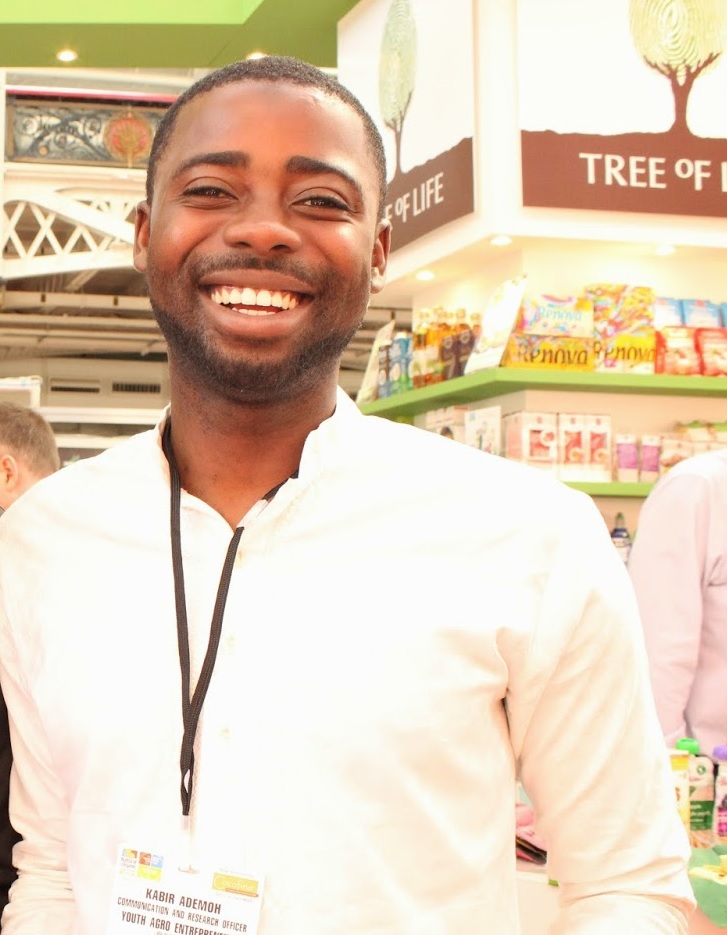Kabir is the Head Of Operations for Ajima Farms and General Enterprises in Nigeria and has worked on a variety of roles within the Agricultural sector. He is the founder of Fresh Daily a grocery delivery business aimed at supplying sustainably grown vegetables from a network of micro-farms. He has a background in Analytical Chemistry with working experiences as a Quality Control Officer before delving into Agriculture and Development projects. Since 2012 he has worked on a plethora of agricultural projects targeted towards social entrepreneurship and sustainable living. He holds a Bsc Pharmaceutical and Chemical Sciences from Brighton University and a PG Res Instrumental Analysis University of Warwick.
What is your off-grid energy business? Can you give a brief overview? How long have you been working on this business?
The Ajima Farms Waste – 2 – Watts project is is a renewable energy initiative that focuses on converting agricultural waste (poultry, livestock, crop waste) and communal waste (kitchen and human wastes) into electricity, cooking fuel using a bio-gas digester for off-grid farming communities in Federal Capital Territory at an affordable cost. Through this service, Ajima Farms aims to provide cheaper access to clean energy and create jobs for the residents of these communities, stimulate economic growth while reducing the environmental problems that landfilling this waste would have otherwise created.
W2W services would be focused in off grid communities which are predominantly rural farming communities that engage in crop production and poultry farming. The project was conceptualized in 2015 and initiated in 2016.
What inspired you to start working in off-grid energy? Are there any key people who inspired you to work in this area?
The vast amount of waste accrued from our poultry farming activities and the challenges of managing this waste coupled with extreme energy poverty prevalent in the Nigerian economy was a catalyst in engaging into off-grid energy business. Creating an estimated 11 tons of organic waste daily on the farm became a source of inconvenience and environmental hazard to the residents of our neighboring communities due to the offensive odor from these landfills. The elegant research and work of Reverend Father Nzamujo in Biogas energy for clean cooking and electricity solution at the Project Songhai Farms of Porto Novo, Benin Republic served as a major inspiration.
Have you lived in a off-grid community? What is something you want people with reliable energy to know about growing up off-grid?
While I have not lived in an off-grid community before, the poor state of energy supply and serious issues of energy poverty prevalent in Nigeria has given me a clear idea of the challenges associated with off-grid communities. The biggest challenges faced are associated with high cost of living in comparison to the modest earnings available. A large percentage of resources are spent in trying to gain access to the grid to power solutions for some basic needs like clean cold drinking water in the heat, powering up the batteries of mobile phones to communicate with loved ones or grinding the grains to feed the family.
What are the main things you have learned while working as an entrepreneur in off-grid energy? Your biggest success and biggest failure? Key epiphanies or turning points?
Engaging with the members of various off-grid communities proofed a vital success in our business as we were able to understand and appreciate the scope of the problems associated with off-grid living. This was extremely helpful in developing our solution and successful adoption of the innovations we brought in.
A major turning point during developing the solution for the communities was during sensitization exercises with the youth in the community and realizing that they were all attending schools in the towns and cities with electricity grid available to them thereby creating the awareness and need for electricity to help improve quality of life.
What has surprised you most about working as an off-grid energy entrepreneur?
The off-grid entrepreneurship experience is very unique because you feel a strong impact your solution is creating. The values you are adding to your customers are very apparent and require minimal marketing or selling your value addition or unique selling points. In a country where energy challenges is a major setback for development, this feels like social entrepreneurship at its finest.
What has been most difficult/most rewarding?
The most difficult aspect of our enterprise has been engaging the policy makers and the general public to create an enabling environment that makes it suitable for business. Waste management awareness still needs a lot of activism and development in the country so that the operational cost of enterprises like ours is within profitable limits.
If you could share some wisdom with yourself 3 years ago, what would it be?
I would borrow the words of the Portuguese writer Fernando Pessoa when he said “pick every stone in your path and use it to build a castle” .








